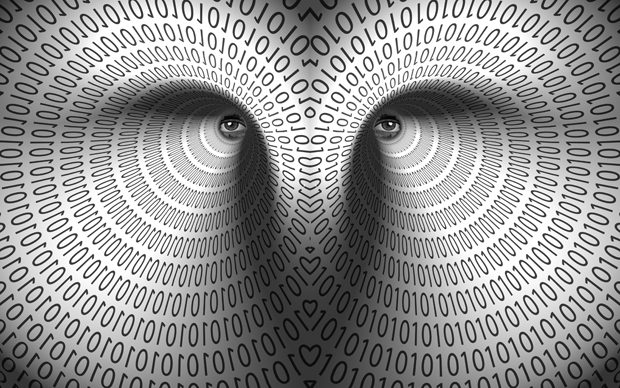
(Illustration: Shutterstock)
In the 1970s, mass surveillance was seen as especially a Cold War thing – what the Soviet bloc did to its own citizens, while also spying on the West. The West ‘only’ targeted a few Soviet spies and perhaps some left-wingers too — but mainly focusing on the Soviet Union and its satellites. From phone taps to opening letters, to directly observing someone, mass population surveillance was certainly undertaken by the Stasi and others, with their armies of informers. But mass snooping was not seen as a domestic concern or risk at home in the West.
Today and every day, we leave our digital footprints all over the place. Our digital trail is collected by telcos, web hosts, social media and others. And as the Snowden/NSA revelations have shown, our data is especially hoovered up from all these sources and more by the US, UK and other governments – covering millions of people around the world.
Prism, Tempora and other programmes indicate a major intelligence dragnet that surely constitutes mass surveillance, with little legal justification, and one that invades and undermines our right to privacy and our freedom of speech – since if everything we write, say and do is recorded and collected then how we behave as individuals and social animals surely changes.
Not so say some. Mass data retention isn’t snooping and surveillance until you analyse it and use it – and then there are various laws that allow targeting of suspicious individuals or groups. After all, if companies like Google, Facebook and Yahoo accumulate masses of our data, and analyse it for advertising purposes, then why should we worry that governments hoover up our data too?
This is a slippery argument and worth unpacking. If a government and its intelligence services want to spy on their own or another population, there is very little transparency and accountability as to how they do that, or what the legal justification, if any, is – and as the underwater cable taps by GCHQ indicate, often with very little need to approach the web hosts or anyone else to ask permission to intercept data.
Mass surveillance needs various elements to work for those carrying it out. You need to collect the data, analyse it according to your interests and needs, and then act on it in some way. For sure the Stasi, like authoritarian regimes and actors today, also understood well that even the act of collection could be, and was intended to be, chilling and fear-inducing.
But what of the US or British or French governments today? Is their collecting of data on all of us – around the world not just their own populations – just big data, to be used for targeted analysis? Or is it an inevitably chilling act, on the basis of which fishing expeditions are carried out, groups and individuals are identified on a large scale as potentially suspicious through the data analysis, and further monitoring and arrests, through to extraordinary rendition or drone attacks, may be the follow up.
The huge quantities of data collected on us in one programme – such as Tempora – can be analysed to build a multi-dimensional picture of our individual personal lives. And with little or no transparency as to who can access the data, or how the analysts are themselves monitored and regulated.
Mass data collection on all our digital communications challenges our rights to freedom of speech and privacy, and more broadly puts at risk our democracy – how can governments be held accountable, if journalists’ sources are no longer anonymous or campaign groups are fully monitored?
The huge overreach by the US and UK governments in deliberately collecting up our data around the world has set up the framework and data for mass surveillance. It’s a core part of monitoring us all. If we are to stop it, then we have to stop the reckless hoovering up of our data (to an extent that puts companies in the shade) and return to a more proportionate and targeted approach.
Mass data retention is a central element in mass surveillance. It needs to stop.




